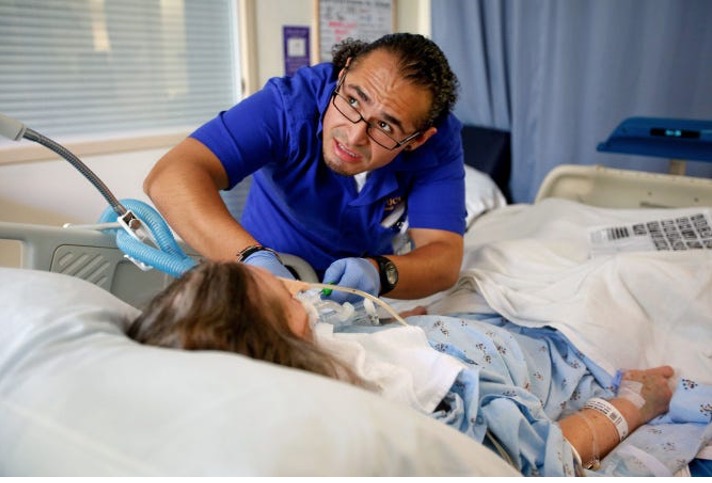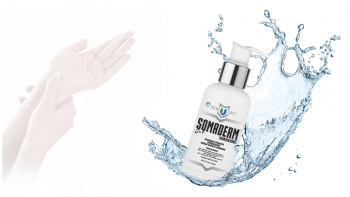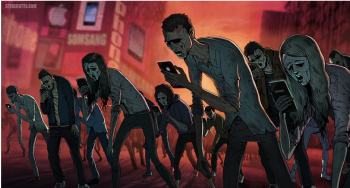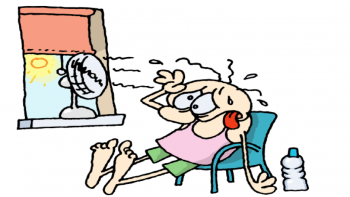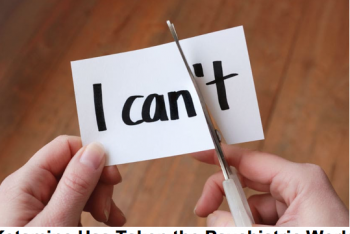CommentsTHE DOCTOR IS IN - As the kind of doc who likes to teach (from elementary school to medical resident physicians, and or course to my patients), there comes a point every once in a while where the odds and ends become so numerous and important as to give in to the urge to pass them on to CityWatch readers (and anyone else who will listen).
So will I do more of these? Of course--there's just too much going on in this field to keep up for most doctors, nurses, and other health care providers...let alone Joe/Jane American. So let's dive into this, shall we?
Warning: Lots of links, for you to ignore or pursue, as you see fit. One thing about medicine the rest of science--unlike today's feel-good, political, and power-driven "experts agree that" and "evidence shows that" paradigms, we need to CITE our opinions and evidence.
1) Vitamin D affects mood--and may help with depression. Lots of Vitamin D receptors exist in the brain that help control mood.
Meta-analyses (the gathering of data from different studies to (hopefully) draw conclusions for the bigger picture of Vitamin D and depression that are historically mixed. Some support it, and others don't, but the overall thrust supports daily intake of approximately 2,000 IU (International Units) or more of Vitamin D.
Vitamin D is best taken as the bioavailable variant that is Vitamin D3. Vitamin D3 is the more potent form of Vitamin D, but often has some animal products. Hence we have Vitamin D2, which is fungus/yeast-derived, which may appeal to vegans because Vitamin D3 is fish-derived. There are, however, vegan-derived Vitamin D3 products...just remember that Vitamin D3 is, overall, better than Vitamin D2.
But please don't take up to 5,000 or more IU/day. Run this by your doctor, especially if you're low on Vitamin D (most of are, because we need either the sunlight or oral Vitamin D to convert our body's pre-Vitamin D into Vitamin D, and we're indoors more by our computers, and with COVID).
Because kidney stones really SUCK. Trust me, I know from first-hand experience.
But so does rickets in childhood, and osteoporosis in adult, as well as significantly worsened COVID-19 in patients with low Vitamin D levels. However, TOO MUCH Vitamin D won't help, so it's your blood levels (which are affected by bowel inflammation and obesity) that make all the difference and is "the bottom line" if we're too low in Vitamin D.
Studies are mixed, but Vitamin D can be associated with hair loss (a bummer for men, but devastating for many women (akin to "losing a breast", say some). Half of BOTH women and men have female- or male-pattern hair loss, so chalk up another reason for daily Vitamin D.
Low Vitamin D levels are found in patients with Atopic Dermatitis, also called Eczema.
Ditto for Psoriasis. Yet we know that outdoor exposure both helps Eczema and Psoriasis, and that sunlight affects Vitamin D levels, and that obesity can lower Vitamin D levels, so what's the cause and what's the effect, here?
And boy, did I spend a lot of time talking about Vitamin D. Moving on...
2) Yes, you DO come up with your best ideas during showering. Let your mind wander!
In studies comparing engaging in a demanding task, without any rest or break, having an incubation period led to substantial improvements in performance on previously encountered problems.
On the other hand, boring videos like watching two men folding laundry, versus watching Meg Ryan demonstrate how to convincingly fake an orgasm in a crowded restaurant in the classic 1989 film "When Harry Met Sally", led to more ideas and innovation with the latter (and not necessarily sexually-related, either).
So rest and sleep when you can, and when you need it the most let your mind wander in the shower (perhaps it'll be worth the higher utility bill!).
3) Finally, petting dogs does engage the social brain, and with increased brain activity of the prefrontal cortex that helps regulate and process social and emotional interactions.
Feeling, touching, petting, and even viewing real dogs leads to increased activity of the prefrontal cerebral cortex, and even after the dogs were no longer present. The more the interaction (petting), the more the emotional arousal.
But when real dogs are replaced with stuffed animals? No dice. In this Swiss study, the use of Leo, a stuffed lion with fur filled with a water bottle to match the temperature and weight of the dogs, did NOT increase emotional arousal. Poor Leo! (And this from a guy like me who actually LOVES stuffed animals!)
Hence, therefore, the need for service animals to treat individuals with loneliness, chronic disease, PTSD, etc. has merit.
An added bonus, as noted in a study from Gainesville, Florida, is that caring for a pet can protect the aging brain.
I suspect this last topic is something many (if not most) of us kind of knew already.
And so I'm running out of space--if you've not already moved on to another article, I thank you for your patience and attention.
In future pieces highlighting the "Heal" and "Care" in Health Care, there will be issues such as Patient Satisfaction scores, "Quiet Quitting" in both our society and especially in health care, when are drugs truly expired, changes to sleep, stress, and happiness after age 35, and the potential benefits of napping.
And rest assured, there are many of us physicians and physician extenders (physician assistants and nurse practitioners) who DO want to Heal you...and who very much DO care.
(Kenneth S. Alpern, M.D, is a dermatologist who has served in clinics in Los Angeles, Orange, and Riverside Counties, and is a proud husband to a wonderful wife and father to two cherished children. He was termed out of the Mar Vista Community Council (MVCC) twice after two stints as a Board member for 9, years and is also a Board member of the Westside Village Homeowners Association. He previously co-chaired the MVCC Outreach, Planning, and Transportation/Infrastructure Committees for 10 years. He was previously co-chair of the CD11 Transportation Advisory Committee, the grassroots Friends of the Green Line (which focused on a Green Line/LAX connection), and the nonprofit Transit Coalition His latest project is his fictional online book entitled The Unforgotten Tales of Middle-Earth and can be reached at [email protected]. The views expressed in this article are solely those of Dr. Alpern.)

